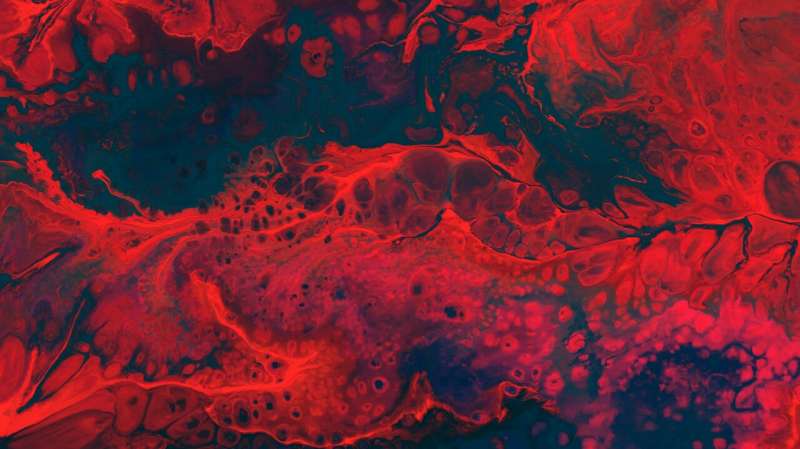COVID-19 Infection Accelerates Blood Vessel Aging, Particularly in Women, Study Finds

New research shows COVID-19 infection accelerates blood vessel aging, especially in women, increasing cardiovascular risks. Learn about the study's findings and prevention strategies.
Recent research published in the European Heart Journal reveals that COVID-19 infection can lead to accelerated aging of blood vessels, with a more pronounced effect observed in women. The study indicates that even mild cases of COVID-19 may cause blood vessels to age about five years beyond their actual age, a process that increases the risk of cardiovascular diseases such as stroke and heart attack.
Blood vessels naturally become stiffer and less flexible with age, but COVID-19 appears to hasten this process. This vascular stiffening is concerning because it can significantly elevate the risk of life-threatening cardiovascular events. The research was led by Professor Rosa Maria Bruno from Université Paris Cité, France, who emphasized that ongoing symptoms in COVID survivors, known as long COVID, may be linked to this vascular damage.
The study involved 2,390 participants from 16 countries, including Austria, Australia, Brazil, Canada, Cyprus, France, Greece, Italy, Mexico, Norway, Turkey, the UK, and the US, recruited between September 2020 and February 2022. Participants were grouped based on their COVID-19 history: no infection, recent infection without hospitalization, hospitalization on a general ward, or admission to intensive care.
Vascular age was assessed using carotid-femoral pulse wave velocity (PWV), a measure of arterial stiffness. Higher PWV indicates stiffer arteries and older vascular age. Measurements taken six and twelve months post-infection showed that all COVID-infected groups exhibited increased arterial stiffness compared to uninfected individuals. Notably, women experienced greater increases; mild COVID cases resulted in a 0.55 m/s rise in vascular age, while severe cases involving ICU treatment showed a 1.09 m/s increase—a change considered clinically significant, equivalent to aging five years and associated with a 3% higher cardiovascular risk.
Vaccination appeared to mitigate some of these effects, with vaccinated individuals showing less arterial stiffness than those unvaccinated. The vascular aging observed seemed to stabilize or improve slightly over time.
Professor Bruno explained that COVID-19 impacts blood vessels via the angiotensin-converting enzyme 2 receptors, which the virus uses to infect cells lining the blood vessels. This infection and subsequent immune response may cause vascular dysfunction and premature aging. She also pointed out that women’s immune responses might be more robust, possibly explaining the greater vascular impact observed in females.
Addressing this issue involves lifestyle modifications and medical treatments such as blood pressure and cholesterol management to reduce cardiovascular risks. The ongoing follow-up aims to determine if COVID-induced vascular aging predicts future cardiovascular events.
An editorial accompanying the study highlighted that post-acute COVID syndrome affects a significant proportion of survivors with symptom persistence along with arterial stiffening. Researchers pose critical questions about identifying modifiable factors to prevent or reverse COVID-related vascular aging, especially in women.
This research underscores the importance of cardiovascular health monitoring in COVID-19 survivors and highlights the potential long-term impacts of the virus on vascular health. Early intervention could be vital in reducing future cardiovascular disease risk in affected individuals.
Stay Updated with Mia's Feed
Get the latest health & wellness insights delivered straight to your inbox.
Related Articles
Innovative Framework for Understanding and Measuring the Biological Foundations of Health
A new scientific framework for understanding and measuring health focuses on the concept of 'Intrinsic Health,' emphasizing biological resilience, energy, communication, and structure to promote proactive wellbeing and aging research.
Generation X Faces Higher Risk of Methamphetamine-Related Deaths in Australia
Australia's Generation X faces a worrying rise in methamphetamine-related deaths, with recent research highlighting gaps in support services and the impact of stigma on treatment access. Learn more about this concerning trend and its implications.
Innovative Digital Twin Technology Enhances Artificial Pancreas for Better Diabetes Management
A new digital twin technology integrated into artificial pancreas systems significantly improves blood sugar control for people with type 1 diabetes by enabling personalized, adaptive management.
Decrease in Nonmedical Use of ADHD Prescription Drugs Among Teenagers
Recent study shows a significant decline in nonmedical use of ADHD medications among teenagers over the past 20 years, while medical use remains stable. Learn about the trends and implications.



